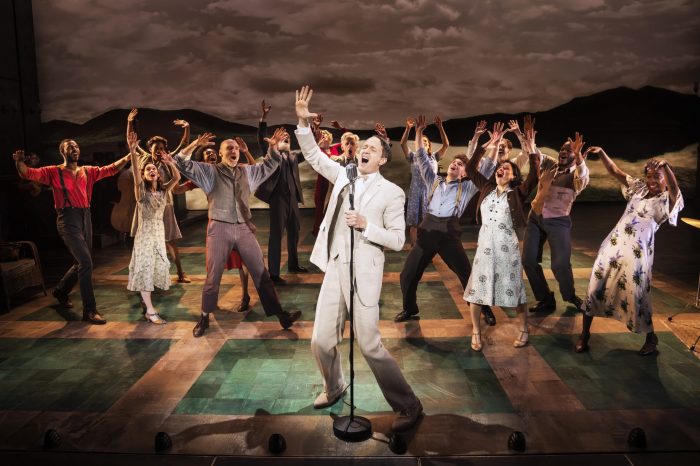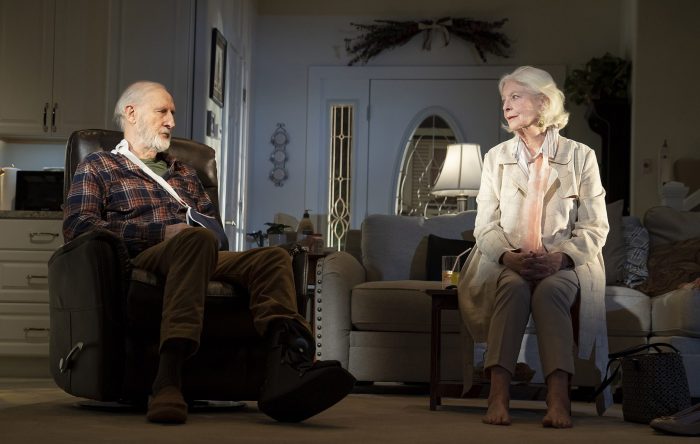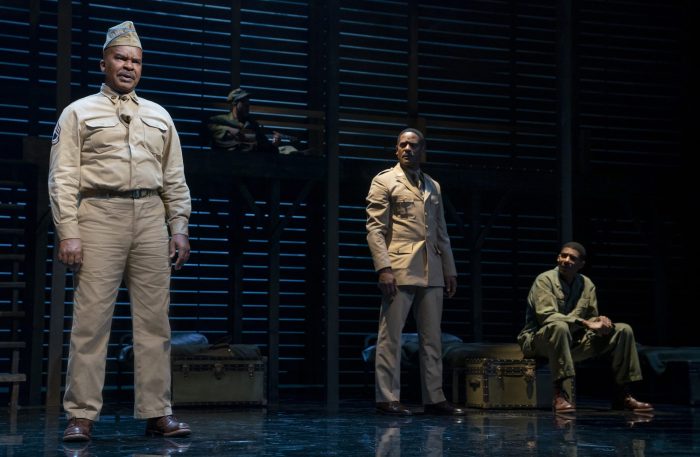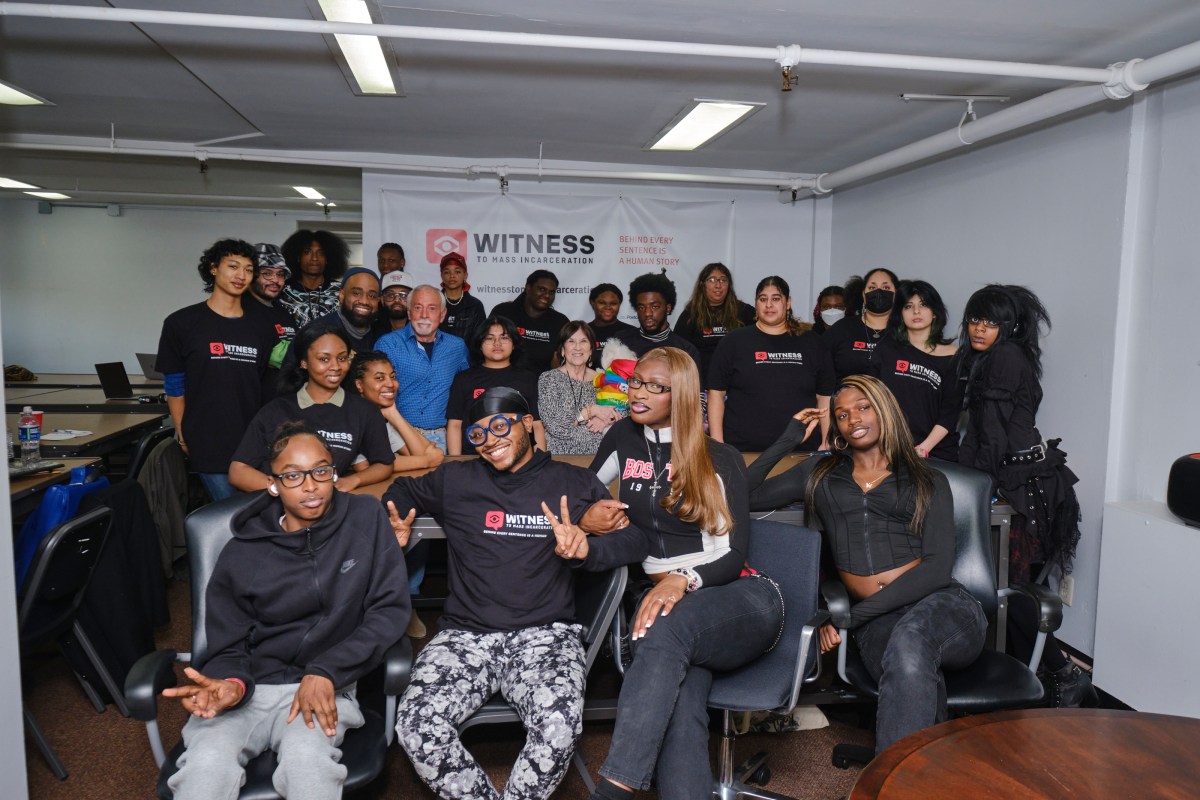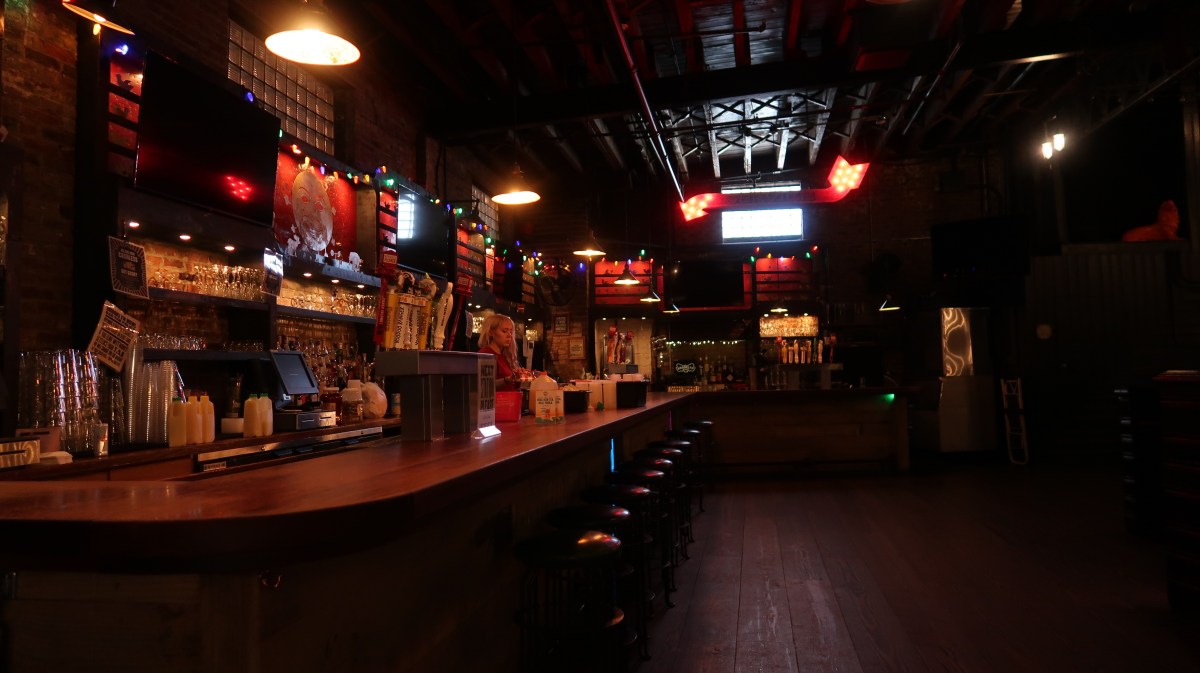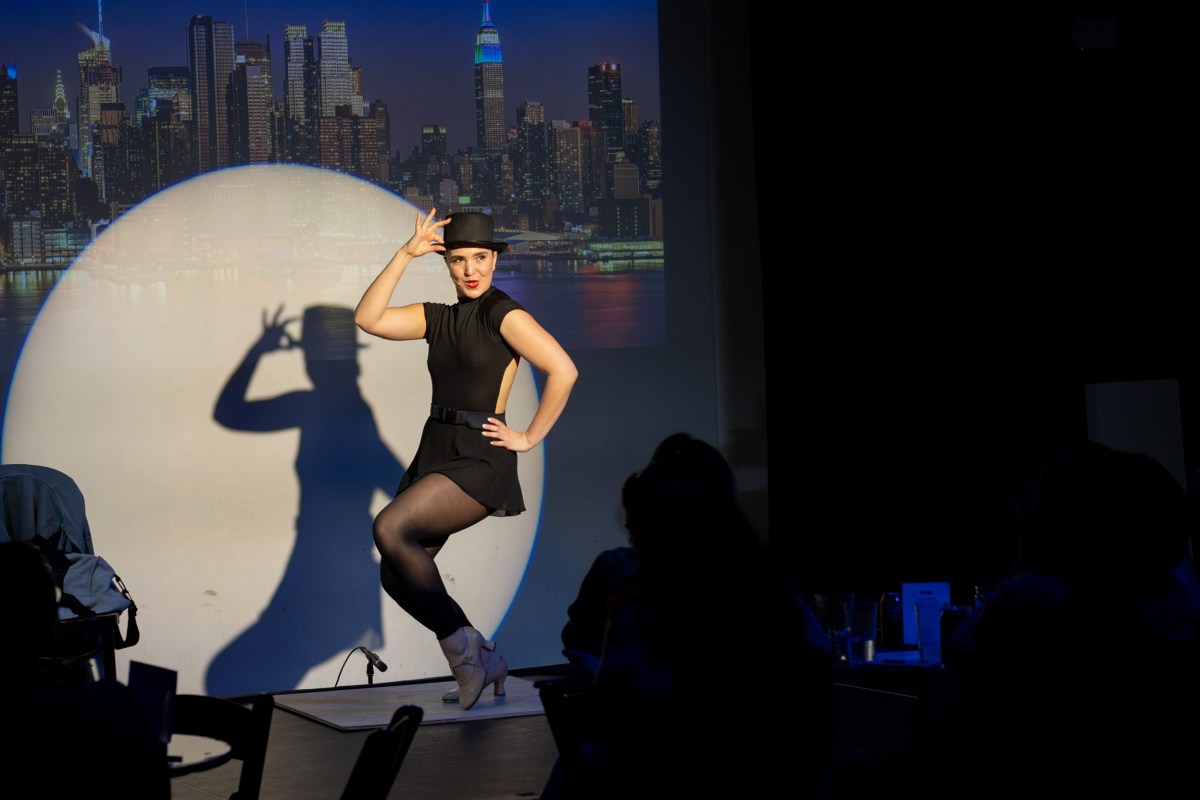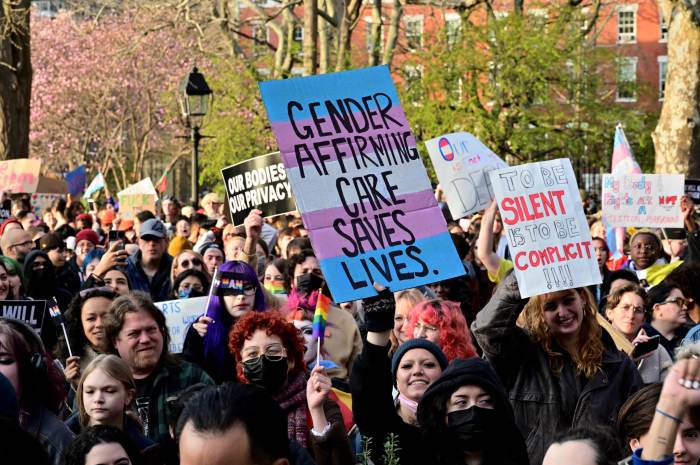Has the long overdue moment of recognition finally arrived for “Caroline, or Change,” Jeanine Tesori and Tony Kushner’s divisive, and adventurous 2003 chamber musical, which is currently being revived on Broadway by the Roundabout Theatre Company?
In 2004, following an Off-Broadway premiere at the Public Theater, “Caroline, or Change” transferred to Broadway, where it got overshadowed by “Wicked” and “Avenue Q,” earned mixed reactions, and lasted just 136 performances. Since then, it has been produced regionally to more acclaim.
The difficult and somber show utilizes elements of memory drama, civil rights protest, Jewish-American and Black identity, class tension, and even wild anthropomorphism. Its sung-through, relatively unmelodic score represents an eclectic mix of 1960s pop, rhythm and blues, spirituals, klezmer, and contemporary opera, including conservations in recitative and an aria-like 11 o’clock number that roars with anger and pain.
Set in 1963 in Louisiana, it focuses on the fragile relationship between Caroline, a middle-aged, divorced mother and maid, and Noah, the eight-year-old son of her Jewish employers. In the first scene, Caroline is seen doing the laundry in a humid underground basement Though she is technically alone, the washer, dryer and the radio are portrayed by actors and try to engage her in conversation. Later on, a city bus and the moon are also given human personifications.
Caroline and Noah’s relationship reaches a crisis point after Noah’s new stepmother Rose encourages Caroline to keep any spare change that she finds in Noah’s pants pockets. Simultaneously, the bitter and downbeat Caroline attempts to ignore the sweeping social changes taking place around her.
Just as the original production was built around a titanic, rough and raw performance from Tonya Pinkins as Caroline, the Broadway revival (which originated abroad at the Chichester Festival Theatre) contains an exceptional performance by English actress Sharon D Clarke, who is subtler and more vocally precise than Pinkins but just as sharp.
Clarke is joined by the kinetic Samantha Williams as Caroline’s teenage daughter Emmie, a sad-sack John Cariani as the recently widowed Stuart, a perkily manic Caissie Levy as Rose, and an exuberant Chip Zien in a showstopping turn as Rose’s defiantly socialistic father. Three young actors alternate playing Noah at difference performances.
Some of director Michael Longhurst’s ideas pay off (displaying the town’s statute of a Confederate soldier both before and after it is vandalized, emphasizing the swampy physical environment, a post-climactic rainfall special effect) and others are awkwardly inserted and strained (having many scenes performed on a narrow balcony level, incorporating a turntable).
“Caroline, or Change” ought to be better appreciated today. Not only have people had more time to absorb its score, its plot (which reflects upon systemic and unconscious racism) speaks directly and powerfully to the current cultural moment.
Studio 54, 254 W. 54th St., roundabouttheatre.org. Through Jan. 9.



![Review | 'Caroline, or Change' makes timely return to Broadway 1 [0051] Sharon D Clarke, Arica Jackson in Roundabout Theatre Company’s CAROLINE, OR CHANGE, 2021. Photo by Joan Marcus](https://www.amny.com/wp-content/uploads/2021/10/0051-Sharon-D-Clarke-Arica-Jackson-in-Roundabout-Theatre-Companys-CAROLINE-OR-CHANGE-2021.-Photo-by-Joan-Marcus-scaled.jpg?w=1200)

